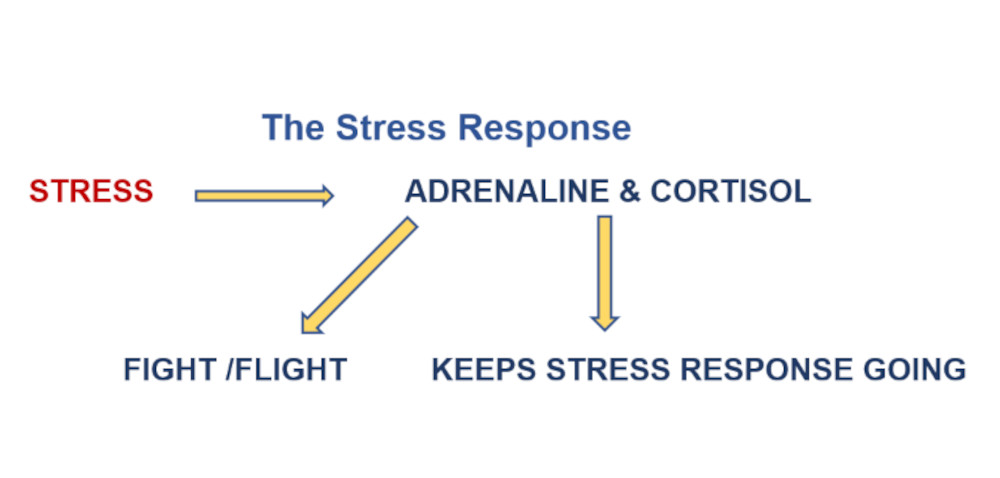
Stress, Coping and Our Health
Stress, Coping and Our Health
Stress, Coping and Our Health
Stress, Coping and Our Health
Stress, Coping and Our Health
Stress, Coping and Our Health
- Dr. Marla E. Jirak

Stress, Coping and Our Health
What is Stress?
Stress is a normal response to “stressors”—either internal or external circumstances that are difficult, upsetting, or scary.
Internal Stressors: Distressing thoughts or memories, physical sensations (pain or discomfort) and emotions (sadness or anger).
External Stressors: Concerning event, situation or circumstance that has the potential to negatively impact a person or something or someone they care about.
Types of Stress
Eustress: Positive stress that is helpful and motivating. This type of stress helps motivate people to work hard—improve their performance—reach their goals, even in the face of challenges.
Distress: This type of stress is negative and associated with feeling “stressed out.” Distress causes people to feel overwhelmed—anxious—physical and psychological symptoms can appear (headaches, tension, insomnia, inattentiveness, or irritability.)

Fight/Flight Keeps Stress Response Going
Effects of Stress on Our Health
Long term “ON” from stress produces a heightened adrenaline response where we engage in a fight or flight response. In addition, continued stress produces continued cortisol production. This leads to: Low energy—No motivation—Illness—Body wears down—Gets tires and exhausted–Leads to sickness and disease. A partial list of stress related symptoms include:
Physical Health Issues: Addictions, breathing problems, depression, digestive disorders, eczema, fatigue, gallstones, headaches/migraines, gallstones, indigestion, inflammation, nausea, overweight, psoriasis, ulcers, and viral infections.
Cognitive Health Issues: Forgetfulness, difficulty with concentration, confusion, trouble making decisions and PTSD.
Emotional Health Issues: Feelings of hopelessness, isolation, guilt, worthlessness, constant sadness, feeling bule, fearful, worry, anxiety, crying spells, and loss of interest in activities or hobbies.
Coping with Stress How we think or appraise a situation determines the response to any stressful event. Also, our own individual profile comes into play. Our tolerance for the event, our own triggers (personal, social, environmental, or social), our personality traits and how we respond have a role in the management of our stress.
Finding effective coping measures helps with the management of our response to stress. Some effective coping strategies include:
- Breathing—Taking deeps breathes in through the nose, holding for 5 seconds, and exhaling through the mouth; repeat 3 times.
- Sleep—6 to 8 hours of sleep per night, stop electronic viewing, no caffeine or alcohol 1 hour prior to bedtime, using blackout curtains.
- Meditation—Doing yoga, focusing on imagery, mantras, or visualization.
- Exercise—Going for a walk, to the gym, taking Zumba classes, lifting weights, or workout videos.
- Sound Nutrition—Implementing a diet with low fat, low sugar, low carb and less red meat.
- Time Management—Making To-Do lists, putting appointments in Goggle calendar for daily tasks.
- Personal Life Coach—Engaging in conversations with a life coach to put together a strategy for dealing with your stress
It is not possible to change every habit that creates stress for us. However, the more we practice healthy coping measures, the more we can manage the stress that occurs.


